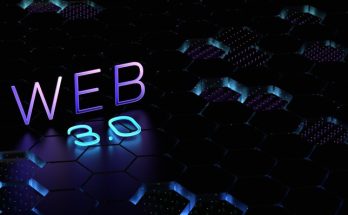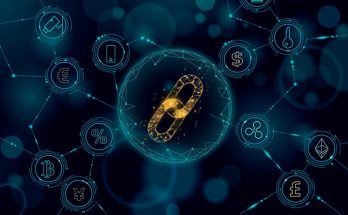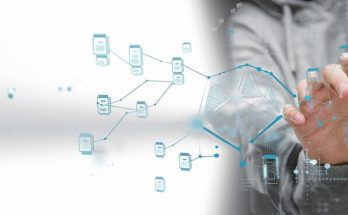More than 13,000 DAOs are currently functioning across the world, collectively having several billions of treasury funds and having to grapple with a curious paradox: what are democratic decisions in a system with 76.2 percent of the voting power in the percentage of the most active 10 percent of voters? This dilemma is at the core of the contemporary DAO governance, where the blockchain technology interacts with the centuries-old demands on such topics as equity, effectiveness, inclusiveness, and representation.
DAOs have become much more than test tubes. The use cases managed today by DAOs have ranged as far as the billions of dollars in DeFi protocols down to the funding of publicly good infrastructure that underpins open-source development. The decision patterns of these organizations determine not only their prosperity, but the future of decentralization in collaboration as a whole.
What Is Different About DAO Governance?
Conventional companies are built on top-down decision making. CEO decides, the board approves, and employees implement. DAOs reverse this model entirely.
The voting and governance decisions-making in a DAO takes place through smart contracts and consensus. All the significant decisions are proposed, discussed, and voted upon by the community members. In case of consensus, the decision is carried out instantly by smart contracts without having to involve human interference.
This generates a level of transparency that has never been seen before. All votes, all proposals, and all treasury transactions are recorded forever on the block. One can track each way the decisions were made and who agreed to what.
However, not everything that is open is equal to something that is fair. In practice, the decentralization ideal is more than the ideal in theory.
Five Central DAO Governance Models to Influence 2025
To be able to comprehend the decision-making process of DAOs, we will have to take a closer look at the mechanisms implemented by them to make voting and reach a consensus. The available models have specific benefits and compromises.
Token-Weighted Voting
The commonest method is where a single governance token entitled each to have a single vote. More tokens translate to more votes. It is easy, understandable, and produces participation among big stakeholders.
This model is impeccably represented by ENS DAO. Holders of tokens are able to vote on treasury distributions, protocol-governance, and more. By giving individuals incentives to purchase and spend tokens, the system gives them skin in the game.
But that leads to the whale problem. Decisions are sometimes dominated by big token holders and small community members are thus rendered helpless. The centralized nature of election making can be called into question when some wallets end up with enormous voting power.
Quadratic Voting
This recent tyranny model challenges the dominance of whales. And you may vote as many times as you wish on proposals but voting more than once costs exponentially more tokens.
One of the first to use this approach was CityDAO, where it would be costly to any one organization to hold up the decision monopoly. Want to cast 10 votes rather than 1? You may have to burn 100 tokens rather than 10.
The mathematics tends to get advanced fast breaking down the scope of recreational players. However, the equity advantages are large when suitably executed.
Reputation-Based Governance
Rather than the voting power be based on a set of tokens, that system rewards active participants. Your power increases depending on collaboration, coding contributions, or contributions to the society.
MakerDAO has been trying out reputation scoring where it puts more emphasis on voices of those actively contributing as opposed to mere holders of tokens. This promotes substantive investment rather than mere capital investment.
The complicating issue is that contributions can not be simply measured. What do you compare the code commits of a developer to the Discord activity of a community manager? Such subjective judgments may lead on to bias and gaming.
Multi-Signature Governance
Other DAO settings take a representative democracy form rather than direct democracy. The authority to accept or reject proposals is possessed by a created group of trusted community members who must usually reach a majority.
SafeDAO behaves in this fashion, where several signatories are required to take any action with the treasury. It is effective with respect to small-scale societies and lower the cost of organizing the mass vote.
The disadvantage is quite apparent: you are centralizing power in fewer hands, which is not in the spirit of decentralization. Whether the success will be such depends solely on the selection and rotation of representatives in a fair sense.
Hybrid Models
The most progressive DAOs combine different governance techniques. They could apply token voting to make simple decisions, reputation systems to make technical decisions, and multi-sig to make emergency actions.
Decentraland DAO is the experiment that demonstrates this flexibility: it makes its governance flexible to various kinds of decisions. Token voting is used to approve simple updates to assets and more complex smart contract updates require more reputation-based consent.
The Actual Decision Making of Contemporary DAOs
The theoretical models are not as significant because of the practical formulations. Analyzing the most successful DAOs developed so far in 2025, one can see some interesting trends.
Arbitrum DAO was the first to implement multi-layered governance, forming subDAOs to discharge particular tasks, such as grants or infrastructure building. This will decompose complex decisions into small chunks, and there will be coordination on the overall decision.
Uniswap DAO is highly committed to sustainability and education through which it uses its vast treasury to invest in research and legal advocacy. In its SNAPSHOT voting platform, large participation levels are always represented where stakes are high.
With its community-controlled Safety Module, Aave DAO has shown how complex financial decisions can be handled by a DAO collectively, under sophisticated risk. Any protocol upgrade or modification in interest rates is subjected to community proposals.
The Optimism Collective is a different two house take. The Token House is a house of token holders, and the Citizens House is the voice of non-token owners via the citizenship NFT. This addresses the policy question of whether governance needs to be made linked to financial investment.
Emergence of Representative Voting
And this is where 2025 becomes interesting: the majority of the DAO members no longer cast a direct vote.
They instead entrust their voting privileges to other qualified representatives they trust and are experts at governance. Such representatives research proposals, attend local meetings, and vote according to studied information on behalf of their countrymen.
Delegation is made easier by platforms such as Agora and Tally. You may check on the performance of delegates, view their voting, and shift them in the event you do not agree with the actions they take. It is just as though we choose a mini-congress of professionals.
This addresses the issue of participation. Not all individuals have the time to conduct research on every proposal and they can still elect informed representatives, who share their values.
What Are the Greatest Obstacles?
DAO governance has various long-term issues that the innovations in 2025 are yet to address.
- Participation Inequality: There is a high concentration of the voting power, whereas decentralization is pursued. Despite quadratic voting and delegation, active voters still greatly outnumber the intermittent members of the community.
- Information Overload: Involved protocols produce scores of propositions per month. It is not possible to read, understand and to vote everything without investing a lot of time and people simply do not have time.
- Gaming and Manipulation: Pre-proposal trading evidences that block voters earn tokens specifically to manipulate before a proposal is made, how block voters trade among themselves and with proposal managers, who do insider trading with 9.5 percent average returns. These potential conflicts of interest have the ability to annihilate the value, with crisis particularly.
- Legal Uncertainty: Most of the DAOs operate in the legal gray areas. In the absence of definitive laws, decisions made of governance have undefined liability to all parties.
- Technical Barriers: The profession to understand blockchain technology, smart contracts, and tokenomics involves skills that lock out most would-be participants.
AI in DAO Decision-Making
Artificial intelligence is making its entry into the DAO toolbox not to replace human judgment but rather as an assistant that complements the decision-making process.
Artificial intelligence is currently being used to summarize complicated proposals, to predict trends in voting, and to identify possible Sybil attacks in which one party can create multiple accounts to influence votes. Certain systems are even able to predict results of the proposal prior to actual implementation.
It is just like having an intelligent research assistant to eliminate information overload. They are also starting to use AI agents to perform routine services such as the distribution of grants or moderation of the community whilst the humans are only concerned with strategic decisions.
Selecting Appropriate Governance Model
There is no one-size-fits-all governance model. The decision is made based on a number of considerations:
- Purpose and Mission: Investment DAOs may prefer voting weighted by tokens to help align their incentives whereas social DAOs may wish to use systems weighted using reputations to encourage community building.
- Community Size: Smaller communities can utilize multi-sig governance, larger communities need more scalable governance, involving voting.
- Decentralization Goals: Not all DAOs value pure decentralization over efficiency, and they are willing to trust less decentralized decision-making in a place in exchange of quicker decisions.
- Technical Complexity: Simple voting can be acceptable in DAOs where the simplest elements of the protocol are used, but this might not be the case with more complex DeFi systems, where hybrid voting models that match less experienced and more experienced individuals with pertinent decision-making will be needed.
Beginning with the simplest way and developing it with time is the best way since the community expands and augments with experience.
What will the Future be?
The field of DAO governance is evolving rapidly with communities testing more mechanisms and emerging technologies. There is a new trend in cross-chain governance which enables DAOs to make decisions between different chains. The focus of traditional institutions in relation to decentralized decision-making is on the rise.
The inevitable paradox between the efficiency and decentralization still exists. The ultimate decentralization is unlikely to exist but the current advancements in voting systems, delegations, and AI support allowed collective decision-making to be more effective and inclusive.
The ultimate success then lies in the capability of developing communities that are concerned with the governance rather than financial returns. As seen, the DAOs that exist in 2025 understand that good governance comes through active participation, clear communication, and ongoing response to the needs of the members.
In the future, the regulatory framework and the maturity of blockchain technology may exponentially grow in detail and popularity in the form of DAO governance. It is not whether or not decentralized organizations will keep growing but how they will overcome the remaining issues of reaching collective decisions at scale.
The 13,000+ DAOs currently in operation are the biggest test of digital democracy thus far by humankind. Their breakthroughs in governance are authoring the playbook of how organizations can work in the more decentralized world.



